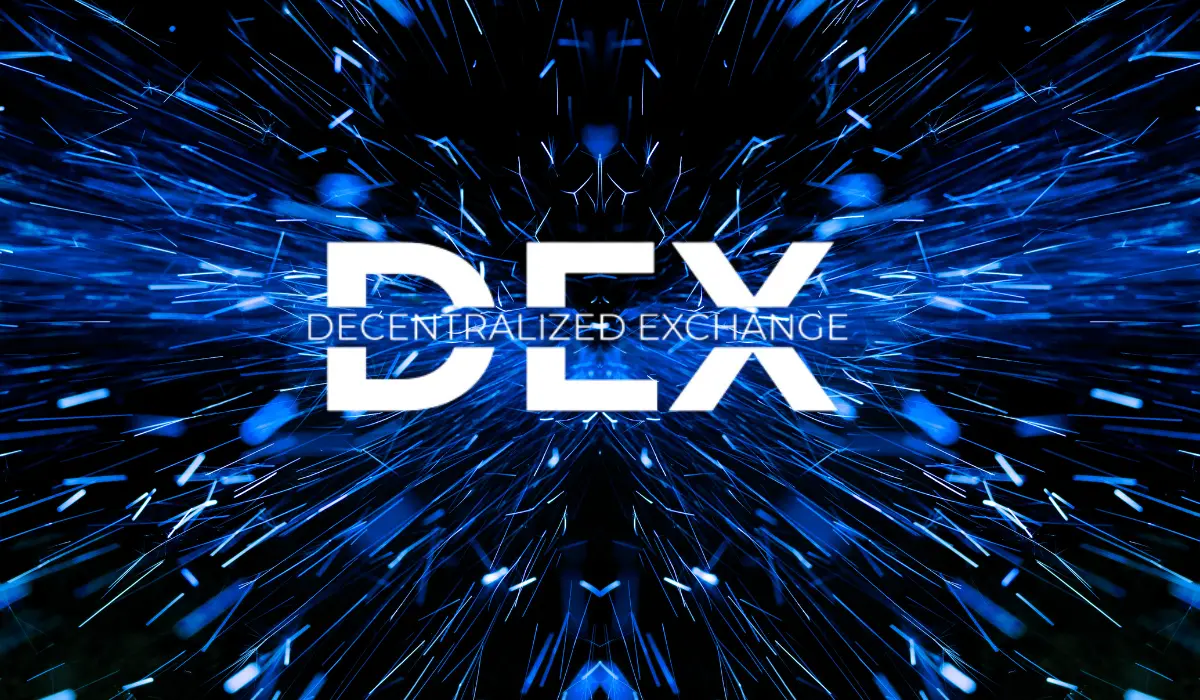DEX is a major component of the crypto ecosystem.DEX can be considered for investors interested in crypto investments by maintaining their privacy and avoiding intermediaries. This article deals with all the major details about decentralized exchanges(DEX). Check this out to avail a comprehensive understanding of DEX.
Let us get started,
Decentralised Exchange (DEX): Overview
A DEX(Decentralised Exchange) is a peer-to-peer marketplace place which users can trade cryptocurrencies in a non-custodial manner without the need for an intermediary to facilitate the transfer and custody of funds.
DEX utilizes smart contracts to substitute the intermediaries.DEX offers complete transparency in the movement of funds and the mechanism that facilitates exchange. Users’ funds are not passed to third-party cryptocurrency wallets during trading.
It also reduces counterparty risks and reduces systematic centralization risks in the crypto ecosystem.
DEX is the cornerstone of decentralised finance and acts as a key player upon which more complex financial products can be created as a result of permissionless composability.
Decentralised Exchange (DEX): How does DEX work?
There are several DEX designs available in the market each offers different benefits and trade-offs in terms of future sets, scalability, and decentralization.
The vision behind DEX is to have permissionless, accessible end-to-end on-chain infrastructure without any central points of failure and decentralized ownership across a community of distributed stakeholders.
The protocol administrative rights are governed by a decentralized autonomous organization made up of community stakeholders which votes on key protocol decisions.
Decentralised Exchange (DEX): Advantages of DEX
- DEX trades are facilitated by deterministic smart contracts which guarantees that the execution will be as intended by the user without the intervention of third parties.
- Users are allowed to participate using self-hosted wallets without any custodians to reduce counterparty risks.
- DEX reduces some of the systematic risks of the blockchain industry by reducing the amount of capital concentrated in a wallet.
- DEX supports financial inclusion by allowing access to smart contracts by internet connection and a compatible self-hosted wallet.
- Users are allowed to sign in in a straightforward manner using a wallet address. The onboarding process of a DEX is seamless and practically instantaneous compared to centralized exchanges.
Decentralised Exchange (DEX): Risks and Considerations
DEX allows democratized access to trading and liquidity provisions by using strong execution guarantees, increased transparency, and permissionless access. The risk factors and considerations of the DEX platform are:
- Smart Contract Risks: Blockchain technology is considered highly secure for executing financial transactions. However, the quality of smart contract code is depended on the skill level and experience of he development team.Smart contract bugs,hacks, vulnerabilities and exploits can happen. DEX users can be suspectable to loss of funds.Deveolopers can mitigate this risk factor by security audits,peer-rewied code and good testing practices but diligence is required.
- Liquidity risks: Some DEX available in the market have poor quality conditions, leading to large amounts of slippage and reduced user experience. Major portions of the trading activities are conducted in centralized exchanges which often leads to reduced liquidity on the DEX trading pair.
- Centralization risk: Most of the DEX aims to maximize their decentralization and censorship resistance points to centralization can still exist. These include the DEX matching engine hosted on centralized servers. The developers have access to DEX smart contracts and use low-quality token bridge infrastructure among others.
- Network risk: The exchange of assets is facilitated by a blockchain use of DEX may be expensive or impossible at the time of network congestion or downtime by leaving DEX users susceptible to market fluctuations.
- Token risk: Many DEX feature permissionless market creation ability for anyone to create a market of any token. The risks associated with the purchase of low-quality or malicious tokens can be higher compared to centralized exchanges. Users are advised to consider the associated risk of participation in early-stage projects.
Final Thoughts
Decentralized exchange(DEX) is the foundation of the cryptocurrency ecosystem that allows users to exchange digital assets in a peer-to-peer manner without the requirement of intermediaries.DEX experienced increased adoption rates in the last few years because of the instant liquidity.
It enables newly launched tokens, their seamless onboarding experience along with democratized access to trading and liquidity provisions.It is about to find out whether the majority of trading and liquidity provisions will get mitigated to DEX.
Whether the DEX designs will support long-term growth and institutional adoption. The DEX is expected to remain a vital infrastructure that continues to witness improvements in transaction scalability, smart contract security, infrastructure, and experience.
The use of centralized exchange is good in the beginning but the traders are provided with more options that include peer-to-peer trading using decentralized exchanges. Crypto investments are associated with risk factors irrespective of centralized or decentralized exchange.
However, beginners are advised to get some exposure before actually using decentralized exchanges for investments. Make sure that you understand how to navigate through the platform by making smaller transactions in the beginning.

